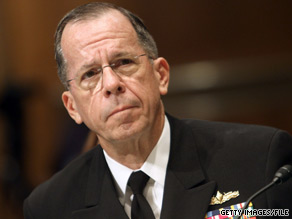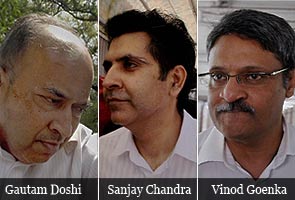BY MURTAZA RAZVI ON APRIL 27TH, 2011 The way Imran Khan has been rallying the youth over the years has now seen him put up a big show in Peshawar over the weekend. “Stop the drone strikes, or we’ll block Nato supplies to Afghanistan!” cried the angry cricketer-turned-philanthropist-turned politician from a stage that seemed more like a pulpit. Khan is no diplomat; he does not know how to mince words, and believes in thinking aloud at all times. He boots for success and does not know of failure; even when failure strikes, as in his politics over the years, he picks up the pieces and starts walking again. Nothing seems to bog him down, no obstacle appears insurmountable; he’s in it for the long haul. Add to this the personal charisma that he has carried all these years, and you have an endearing leader in him: relatively young, educated and articulate. He does not do doublespeak nor plays mind games, and is thus also a darling of the youthful electronic media, many of whose not as charismatic talk show hosts have been echoing the same mix of rightist patriotism in a new, empowered lingo. The only problem is that little of it is based on progressive thinking. Safeguarding national honour is like protecting your women, believing that your honour lies in them, and as your possession, and that they are incapable of protecting it themselves. The truth is that they will remain incapacitated if you do not take steps to educate and emancipate them; make the same tools of life available to them as are to men. The same is true for any nation’s capacity to defend itself and its so-called national honour. Unless a nation has access to the wherewithal of modern life, the right education, a working healthcare system, the social net hedging the less privileged, gainful employment and opportunity for all, it lives a life of utter dishonour and low self-esteem. It is not the West or the CIA that have done this to us. We’ve worked hard to achieve this ignoble status ourselves. The kind of education we impart, with heavy doses of right-wing rhetoric and a hollow sense of patriotism based on the hatred of others, instead of empirical knowledge and adherence of universal values, produces only bigots. Those not having access even to this shady mix of ideological social engineering then gang up on society to blow up schools, preferably girls’ schools, mosques and shrines alike. That’s their revenge on a society that is working to sully not its own honour but also that of the great Muslim faith, hence there can be no meeting point with them. They must be eliminated to make room for the pious and the righteous to establish Allah’s writ in this unruly world which is full of evil attractions for the rich; a whole generation of pious sons must be raised, everyone of whom is a mujahid, ready to kill and maim all those who oppose Allah and his Kingdom. The world must be cleansed of all infidels. Muslims not buying into this world view must also be eliminated for they are agents of infidels.
Now this is the emerging world that Imran Khan has set out to turn around on the back of the groundswell of his popularity amongst largely urban youth. Given the rising anti-US sentiment, mainly in urban Pakistan, and with alleged help from certain powerful quarters that share his vision for an Islamic welfare state, where women and minorities are seen as burden, he is very likely to win more and more converts as he pushes ahead. And the first step in doing so is to cut off Nato’s supplies into Afghanistan, as proposed by him. The next would be to rescind Pakistan’s commitment to being a partner in America’s war on terror, because we’re a state armed with nukes, not Iraq or Afghanistan that could be invaded. In doing so he forgets one critical aspect: who will finance this newfound independence and the flagging about of national honour? According to the political analyst, Khaled Ahmed, Pakistan only succeeds if it succeeds economically. He goes on to say that our economic success hinges very much on whether we give trade passage to willing, buying countries. This may mean giving passage to India and Central Asia from east to west and vice versa, China from north to south and vice versa, and the US and others as and when they need such a passage through Pakistan. Denying this passage will mean that the international community will have to go around us and make other, perhaps more expensive arrangements, like India has done for its oil supplies. The US too can bypass Pakistan by exploring more expensive routes for Nato supplies but in the process it can isolate Pakistan completely, and bring its already troubled economy to a grinding halt. It will not need to militarily invade Pakistan, for we will have accomplished the needful ourselves. Where will then the urban youth, and those nouveau riche TV anchors will go to seek their comforts, more opportunities to prosper and live a better, more promising life, with less loadshedding, more air conditioning and international mobility? A revolution to regain national honour by asserting independence in an increasingly interdependent world will surely result in economic blockade and a nation so inclined left to rot in its own isolation, making it all the more irrelevant to the rest of the world. Drone attacks must stop but we have to remove the bait that brings them on in the first place. In order to start putting things right, one does not start by blocking the roads or threatening to march on the capital to bring down an allegedly corrupt and inept government that has failed to deliver. Who else but Imran Khan should know that to treat cancer he had to build a well-equipped modern hospital instead of destroying the ones that were there and could not provide the needed treatment. The positive energy that went into building that state of the art treatment facility is what is required at the national level to start setting things right; an overdose of radical ideology just won’t cut it. It does not get any simpler than that.
Now this is the emerging world that Imran Khan has set out to turn around on the back of the groundswell of his popularity amongst largely urban youth. Given the rising anti-US sentiment, mainly in urban Pakistan, and with alleged help from certain powerful quarters that share his vision for an Islamic welfare state, where women and minorities are seen as burden, he is very likely to win more and more converts as he pushes ahead. And the first step in doing so is to cut off Nato’s supplies into Afghanistan, as proposed by him. The next would be to rescind Pakistan’s commitment to being a partner in America’s war on terror, because we’re a state armed with nukes, not Iraq or Afghanistan that could be invaded. In doing so he forgets one critical aspect: who will finance this newfound independence and the flagging about of national honour? According to the political analyst, Khaled Ahmed, Pakistan only succeeds if it succeeds economically. He goes on to say that our economic success hinges very much on whether we give trade passage to willing, buying countries. This may mean giving passage to India and Central Asia from east to west and vice versa, China from north to south and vice versa, and the US and others as and when they need such a passage through Pakistan. Denying this passage will mean that the international community will have to go around us and make other, perhaps more expensive arrangements, like India has done for its oil supplies. The US too can bypass Pakistan by exploring more expensive routes for Nato supplies but in the process it can isolate Pakistan completely, and bring its already troubled economy to a grinding halt. It will not need to militarily invade Pakistan, for we will have accomplished the needful ourselves. Where will then the urban youth, and those nouveau riche TV anchors will go to seek their comforts, more opportunities to prosper and live a better, more promising life, with less loadshedding, more air conditioning and international mobility? A revolution to regain national honour by asserting independence in an increasingly interdependent world will surely result in economic blockade and a nation so inclined left to rot in its own isolation, making it all the more irrelevant to the rest of the world. Drone attacks must stop but we have to remove the bait that brings them on in the first place. In order to start putting things right, one does not start by blocking the roads or threatening to march on the capital to bring down an allegedly corrupt and inept government that has failed to deliver. Who else but Imran Khan should know that to treat cancer he had to build a well-equipped modern hospital instead of destroying the ones that were there and could not provide the needed treatment. The positive energy that went into building that state of the art treatment facility is what is required at the national level to start setting things right; an overdose of radical ideology just won’t cut it. It does not get any simpler than that.




 At least one Guantanamo Bay detainee discovered to be involved in a plot to attack the US Consulate in Peshawar and believed to have carried out a string of bombings in Pakistan in 2002, was also on the payroll for British and Canadian intelligence services, according to secret files on detainees at the Guantanamo Bay prison camp. Algerian detainee Adil Hadi al Jazairi bin Hamili, linked with the Algerian Armed Islamic Group and the Hezb-e-Islami Gulbuddin, confessed that he had worked for the Taliban’s foreign ministry and intelligence services as well.
At least one Guantanamo Bay detainee discovered to be involved in a plot to attack the US Consulate in Peshawar and believed to have carried out a string of bombings in Pakistan in 2002, was also on the payroll for British and Canadian intelligence services, according to secret files on detainees at the Guantanamo Bay prison camp. Algerian detainee Adil Hadi al Jazairi bin Hamili, linked with the Algerian Armed Islamic Group and the Hezb-e-Islami Gulbuddin, confessed that he had worked for the Taliban’s foreign ministry and intelligence services as well.  On February 11, 2010, Yasmin, a 15-year-old girl was allegedly burnt by her employers in Okara and died five days later in a hospital in Lahore. Her father weeping at the memory of his young daughter revealed later that this was not the first instance of violence at the hands of Yasmin’s employers. “They used to occasionally beat her up over trivial issues and she would often complain about it. I think we should have just told the police before anything like this happened,” he moaned.
On February 11, 2010, Yasmin, a 15-year-old girl was allegedly burnt by her employers in Okara and died five days later in a hospital in Lahore. Her father weeping at the memory of his young daughter revealed later that this was not the first instance of violence at the hands of Yasmin’s employers. “They used to occasionally beat her up over trivial issues and she would often complain about it. I think we should have just told the police before anything like this happened,” he moaned.  Since the publication of Three Cups of Tea, Americans have lavished nearly $60 million on Greg Mortenson’s Central Asia Institute, to build schools in Afghanistan and Pakistan. Last week, four years after the book came out, someone — CBS’s 60 Minutes — finally visited the schools that Mortenson claims to have built, and found many empty, misused or nonexistent. Reading about the extent of financial irregularity and lack of oversight at CAI, is heartbreaking. But worse, I dread how the crumbling of Three Cups of Tea will reinforce American skepticism and Pakistani cynicism about positive efforts in the region.
Since the publication of Three Cups of Tea, Americans have lavished nearly $60 million on Greg Mortenson’s Central Asia Institute, to build schools in Afghanistan and Pakistan. Last week, four years after the book came out, someone — CBS’s 60 Minutes — finally visited the schools that Mortenson claims to have built, and found many empty, misused or nonexistent. Reading about the extent of financial irregularity and lack of oversight at CAI, is heartbreaking. But worse, I dread how the crumbling of Three Cups of Tea will reinforce American skepticism and Pakistani cynicism about positive efforts in the region. 
 After the demise of Gawalmandi Food Street owing to political pressure in 2008, the Punjab government has planned to set up nine food streets to appease the traditional and continental food lovers, Pakistan Today has learnt. According to the plan, the proposed food streets will be established in Gulberg, Shalimar Town, Nishtar Town, Samnabad, Allama Iqbal Town, Wahgah Town, Aziz Bhatti Town, Ravi Town and Data Gunj Baksh Town.
After the demise of Gawalmandi Food Street owing to political pressure in 2008, the Punjab government has planned to set up nine food streets to appease the traditional and continental food lovers, Pakistan Today has learnt. According to the plan, the proposed food streets will be established in Gulberg, Shalimar Town, Nishtar Town, Samnabad, Allama Iqbal Town, Wahgah Town, Aziz Bhatti Town, Ravi Town and Data Gunj Baksh Town. 
 Not really what I expected, I was looking for a better understanding of the caste system.,April 20, 2011
Not really what I expected, I was looking for a better understanding of the caste system.,April 20, 2011  Shadi Khan was once a proud soldier fighting the Taliban, but today he quivers in pain, socks bagged around metal pins after a bomb blew off his legs on Pakistan’s deadliest battlefield. His unit had arrested 10 Taliban operatives and killed another eight, and was heading back to base camp in South Waziristan when the bomb exploded. That was August 2010. He is still in hospital.
Shadi Khan was once a proud soldier fighting the Taliban, but today he quivers in pain, socks bagged around metal pins after a bomb blew off his legs on Pakistan’s deadliest battlefield. His unit had arrested 10 Taliban operatives and killed another eight, and was heading back to base camp in South Waziristan when the bomb exploded. That was August 2010. He is still in hospital.  SAKHRI NATE, INDIA: In the busy Indian fishing village of Sakhri Nate, it’s obvious what the locals think of the plan to build the world’s biggest nuclear power plant just across the creek. “Say No To Nuclear Power. We Don’t Want To Get Sick,” reads one slogan in Hindi on the side of a tarpaulin-covered shack selling sweet tea and sugary snacks. Chalked on a wall around the corner is a message for the French company that has signed a $9.3-billion deal to supply the plant’s first state-of-the-art pressurised water reactors.
SAKHRI NATE, INDIA: In the busy Indian fishing village of Sakhri Nate, it’s obvious what the locals think of the plan to build the world’s biggest nuclear power plant just across the creek. “Say No To Nuclear Power. We Don’t Want To Get Sick,” reads one slogan in Hindi on the side of a tarpaulin-covered shack selling sweet tea and sugary snacks. Chalked on a wall around the corner is a message for the French company that has signed a $9.3-billion deal to supply the plant’s first state-of-the-art pressurised water reactors.  Pakistan is the 10th largest contributor to the Nuclear Security Fund and it clearly demonstrates a national commitment and serious approach towards nuclear security through the implementation of the Nuclear Action Plan for Pakistan, Deputy Director-General of the International Atomic Energy Agency (IAEA) Denis Flory said on Saturday. He was speaking at the concluding session of the three-day international seminar on Nuclear Safety and Security Challenges of the 21st Century organised by the PNRA in collaboration with the IAEA to mark the nuclear authority’s 10th founding anniversary.
Pakistan is the 10th largest contributor to the Nuclear Security Fund and it clearly demonstrates a national commitment and serious approach towards nuclear security through the implementation of the Nuclear Action Plan for Pakistan, Deputy Director-General of the International Atomic Energy Agency (IAEA) Denis Flory said on Saturday. He was speaking at the concluding session of the three-day international seminar on Nuclear Safety and Security Challenges of the 21st Century organised by the PNRA in collaboration with the IAEA to mark the nuclear authority’s 10th founding anniversary.  US Admiral Mike Mullen rarely smiles. In fact in Pakistan during his 22 visits no one has ever seen him smile. Not that there is very much to smile about. The NATO/ISAF military campaign in Afghanistan is not going well as the Afghans fighting to oust the ‘invader’ spread their actions to Northern Afghanistan and strike in more and more ingenious ways. To make matters worse after spending billions of dollars the capacity of the Afghan Security Forces (ANA) remains poor and recent killings of US/NATO soldiers indicate that the ANA is penetrated by Afghan Taliban sympathizers. The July 2011 deadline for withdrawal is approaching and even in the areas of surges there is no stability. In fact ‘peace and stability’ in Afghanistan remains a pipe dream.
US Admiral Mike Mullen rarely smiles. In fact in Pakistan during his 22 visits no one has ever seen him smile. Not that there is very much to smile about. The NATO/ISAF military campaign in Afghanistan is not going well as the Afghans fighting to oust the ‘invader’ spread their actions to Northern Afghanistan and strike in more and more ingenious ways. To make matters worse after spending billions of dollars the capacity of the Afghan Security Forces (ANA) remains poor and recent killings of US/NATO soldiers indicate that the ANA is penetrated by Afghan Taliban sympathizers. The July 2011 deadline for withdrawal is approaching and even in the areas of surges there is no stability. In fact ‘peace and stability’ in Afghanistan remains a pipe dream.  New Delhi: Five corporate honchos spent Wednesday night in Tihar jail after their bail was denied by a special court for their alleged involvement in the 2G scam. On Wednesday morning, the Delhi court rejected the bail application of Sanjay Chandra, MD, Unitech Ltd and Unitech Wireless, Vinod Goenka, MD, DB Realty and Swan Telecom (now Etisalat), Gautam Doshi, Group MD, Reliance Anil Dhirubhai Ambani Group (ADAG) and Hari Nair and Surendra Pipara, Senior Vice Presidents, ADAG.
New Delhi: Five corporate honchos spent Wednesday night in Tihar jail after their bail was denied by a special court for their alleged involvement in the 2G scam. On Wednesday morning, the Delhi court rejected the bail application of Sanjay Chandra, MD, Unitech Ltd and Unitech Wireless, Vinod Goenka, MD, DB Realty and Swan Telecom (now Etisalat), Gautam Doshi, Group MD, Reliance Anil Dhirubhai Ambani Group (ADAG) and Hari Nair and Surendra Pipara, Senior Vice Presidents, ADAG. 


 There was a truly bizarre and telling paragraph at the end of a
There was a truly bizarre and telling paragraph at the end of a  All earlier arguments over making two students sit at the same desk during the matric examinations seemed absurd on Monday when female candidates at the Waseem Government Girls Secondary School, North Nazimabad Town had to sit on the floor and scribble down their answers.
All earlier arguments over making two students sit at the same desk during the matric examinations seemed absurd on Monday when female candidates at the Waseem Government Girls Secondary School, North Nazimabad Town had to sit on the floor and scribble down their answers.  The world was shocked by a report on CBS’s 60 Minutes this week that accused bestselling author and humanitarian Greg Mortenson of being a fraud. Not only were some of the stories from his book fabricated, 60 Minutes alleges, but the charity that Mortenson created to build schools in Pakistan and Afghanistan never built many of the facilities it has taken credit for. Mortenson’s Three Cups of Tea didn’t, as it claimed, bring education to rural Pakistan and Afghanistan. Its finances are a mess, and the charity does not even seem to have kept track of how many schools it built or how many students attended them.
The world was shocked by a report on CBS’s 60 Minutes this week that accused bestselling author and humanitarian Greg Mortenson of being a fraud. Not only were some of the stories from his book fabricated, 60 Minutes alleges, but the charity that Mortenson created to build schools in Pakistan and Afghanistan never built many of the facilities it has taken credit for. Mortenson’s Three Cups of Tea didn’t, as it claimed, bring education to rural Pakistan and Afghanistan. Its finances are a mess, and the charity does not even seem to have kept track of how many schools it built or how many students attended them.  Large stretches on the highway between Koraput and Malkangiri districts in southern Odisha remain isolated. This highway has been the target of large number of blasts from Maoists. As a result, it is now dotted with camps of the Border Security Force and the Central Reserve Police Force. It is not too difficult to spot the contrasting images here. In pockets, adivasi women wearing vermillion marks on their foreheads can be seen ferrying their children to school. For a long time, Christian missionaries and NGOs were the only entities that reached out to adivasis in Odisha, Chattisgarh, Jharkhand and Northeastern states, apart from the limited engagement of state governments. But, now another juggernaut is rolling in this ideological melting pot, where the security forces and insurgent groups, like Maoists, have taken well-defined positions.
Large stretches on the highway between Koraput and Malkangiri districts in southern Odisha remain isolated. This highway has been the target of large number of blasts from Maoists. As a result, it is now dotted with camps of the Border Security Force and the Central Reserve Police Force. It is not too difficult to spot the contrasting images here. In pockets, adivasi women wearing vermillion marks on their foreheads can be seen ferrying their children to school. For a long time, Christian missionaries and NGOs were the only entities that reached out to adivasis in Odisha, Chattisgarh, Jharkhand and Northeastern states, apart from the limited engagement of state governments. But, now another juggernaut is rolling in this ideological melting pot, where the security forces and insurgent groups, like Maoists, have taken well-defined positions. 
 The media is being kept in the dark over the progress being made by the Election Commission on the
The media is being kept in the dark over the progress being made by the Election Commission on the 










 I don't know how things work in India, but I do know that in the United States when groups like the
I don't know how things work in India, but I do know that in the United States when groups like the  Steamy lesbian pulp fiction series, Challawa, once a household name in Pakistan, is to be published in English. Bano’s sexploits, as related in the Challawa series of journals, were bestsellers in 1970s Pakistan, and were seen as mainstream literature. The heroine of the series, Sabiho Bano, is a wealthy 35 year old Pakistani socialite who has a voracious appetite for young, lower class girls in particular.
Steamy lesbian pulp fiction series, Challawa, once a household name in Pakistan, is to be published in English. Bano’s sexploits, as related in the Challawa series of journals, were bestsellers in 1970s Pakistan, and were seen as mainstream literature. The heroine of the series, Sabiho Bano, is a wealthy 35 year old Pakistani socialite who has a voracious appetite for young, lower class girls in particular.  Lahori’s know all too well that the power of the MQM comes with a price the ordinary people end up paying Under the auspices of giving all political parties of Pakistan access to all political spaces in Pakistan, the MQM has ventured (again) into the unknown waters of the Punjab. The PML-N – dominant in the Punjab – has restarted its activity in Sindh and Karachi as well, despite threats and challenges, so that it does not appear like a party confined to the largest (and most dominant) province alone. Federal Minister for Information and Broadcasting Dr Firdous Ashiq Awan has said that the MQM should be welcomed for launching its political campaign in Punjab, while cautioning that there was “a great difference in politics” of Sindh and Punjab.
Lahori’s know all too well that the power of the MQM comes with a price the ordinary people end up paying Under the auspices of giving all political parties of Pakistan access to all political spaces in Pakistan, the MQM has ventured (again) into the unknown waters of the Punjab. The PML-N – dominant in the Punjab – has restarted its activity in Sindh and Karachi as well, despite threats and challenges, so that it does not appear like a party confined to the largest (and most dominant) province alone. Federal Minister for Information and Broadcasting Dr Firdous Ashiq Awan has said that the MQM should be welcomed for launching its political campaign in Punjab, while cautioning that there was “a great difference in politics” of Sindh and Punjab. 






